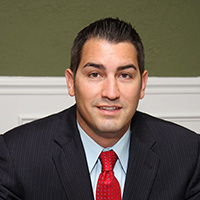Carbon County, PA Bankruptcy Lawyers
Sponsored Law Firm
-
 x
x

Click For More Info:
-
Newman Williams, P.C.
712 Monroe St P.O. Box 511 Stroudsburg, PA 18360» view mapBankruptcy & Debt A Legacy Of Solving Clients' Problems
We are proud to uphold a decades-long tradition of serving clients with courtesy, honesty and integrity. We have been here for you, and we will continue assistance into the future.
570-421-9090
Includes: Bankruptcy Litigation, Commercial Bankruptcy, Consumer Bankruptcy, Dissolution
Jason Michael Rapa
✓ VERIFIEDCriminal, Credit & Debt, Personal Injury, Bankruptcy, Car Accident
Jason M. Rapa, Esquire, is a lawyer licensed and admitted to practice law in the State of Pennsylvania and before all three Pennsylvania Federal Court... (more)
John DiBernardino
Employment, Consumer Protection, Bankruptcy, Car Accident
Status: In Good Standing Licensed: 38 Years
 Vincent Rubino Stroudsburg, PA
Vincent Rubino Stroudsburg, PA Practice AreasExpertise
Practice AreasExpertise

